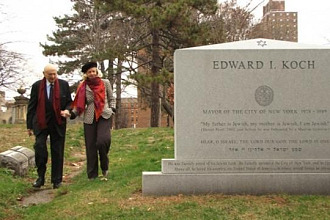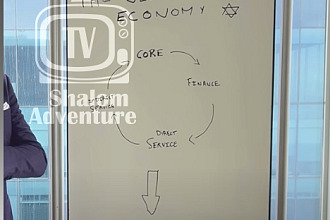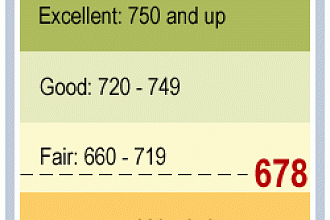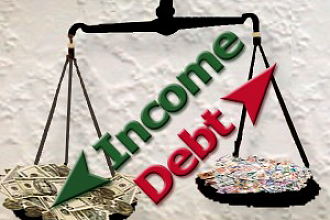Twenty-five years ago my wife and I, together with our two teenagers, visited New York City for the first time. It was quite an eye-opener as we travelled on the subway to see walls covered with graffiti, the carriages filled with litter, and the seats so filthy you would not want to sit down and would be glad to get off at your destination. In 2001 we again visited New York City and what a contrast to that vacation more than a decade before. Men in orange suits cleaned each street block, there was no graffiti on shops or subway walls, and certainly no one hassling you for money or other items.
The transformation of this major US city happened under the leadership of Mayor Rudy Giuliani. Former US Attorney General John Ashcroft described how Mayor Giuliani transformed the social environment of New York City. Giuliani started by going after the little thing. “I am a firm believer in the theory that ‘minor’ crimes and ‘quality of life’ offenses are all part of the larger picture,” he explains. Among the first elements to go were the ‘Squeegee Men,’ drug-addicted and shady-looking riffraff who personified New York’s rough edge. Armed with a soiled rag and a dirty bottle of watered-down Windex, these men would bully and badger motorists for money.
Giuliani said, “We are not going to put up with this anymore,” and he brought this intimidation to an end. He then declared war on graffiti, subway panhandlers, loitering, broken windows, and petty vandalism—minor offenses that would have gone unnoticed in days past while the police force was overwhelmed with homicides and violent crime. . . .
[Giuliani explained] “Small problems can be the first step to big trouble. Neighborhoods scarred by graffiti or blasted day and night by boom-box radios will become besieged, vulnerable, and ultimately dangerous places. If police departments surrender on small issues—using the excuse that they are too busy dealing with serious crime—they find themselves surrendering to the latter as well.”1
The same transformation can happen in your life particularly in relation to personal finances. Making minor changes and developing small steps can change your financial world. Instead of being besieged and vulnerable with never enough money at the end of the month, always going over your credit limit, and falling behind in regular payments, you can, by baby steps, clean up your life and money management. Below are suggestions and examples of small actions that can get rid of the economic graffiti in your lifestyle:
Savings
One of the best examples of little things in money management is saving for the future. If at the birth of your child, you began to deposit in a savings account $1 per day at 8 percent, by the time the child is 20 years old he would have over $17,000 in the bank (your actual contribution would be $7,300).
If you continued putting away that $1 until your child is 35 years old, you could give him a great deposit on his home of over $65,000 (your actual contribution would be $12,775), and if you or your child continue the $1 savings plan per day, by the time he is 69 years old, he would have over $1 million saved for a sunny retirement (yours or your child’s actual contribution would be $25,185).
Even if you only received four percent in interest I do not believe most individuals would be unhappy with half a million dollars at age 69. Proving again the value of small steps, as the Scots would say, ‘a wee amount makes a lot in the long run.’
Housing
Twenty-five years ago I lived in a house that had a 30-year mortgage with a monthly payment of $1,000. When I received my year-end statement, I was in utter disbelief to realize that I had paid $12,000 but all that was deducted from the principal was $600. Despite having a stringent household budget, my wife and I managed to scrape together an extra $30 each month to add toward the principal. At the end of the second year, I was pleasantly surprised that although our year-end statement showed the contribution of $360, my principal deducted had tripled to $1,800. A few extra dollars made a difference—increasing the equity of our home and decreasing our 30-year commitment.
Stewardship
Recent surveys conducted show that only 25 percent of congregational members give tithe and a lesser percentage support the local budget. That means that if a congregation has 200 members, only about 50 families and individuals support the congregation financially. If we could only get 50 more members to contribute $40 a month we could have an additional budget of $2,000 a month or $24,000 a year. That would make for a huge economic change in a number of congregational projects.
Health
We all are reminded from time to time to get adequate sleep, eat nutritional meals, be active for a minimum of 30 minutes per day, reduce the pressure and stress in our lives, and generally improve our lifestyles. But being humans on the move with demanding jobs, kids to take to and from school, dogs to walk, and lawns to mow, we tend to abuse our physical health. Unfortunately, when we recognize the need to change, we often go to the extreme and end up with sore muscles, feeling deprived of our favorite food, and we are likely to “throw the baby out with the bath water.”
However, baby steps in each area of health can often make a difference. As we tell our kids to eat just one more mouthful of salad and then they can have a cookie, we need to say the same to ourselves. We need to have just one more helping of salad and perhaps a handful of nuts, not a cookie. Perhaps plan for 100 calories less per meal, 300 per day, 2100 per week and you will end up one pound less on that scale each seven days. Just 15 minutes of brisk walking after a meal will do wonders to your heart and blood pressure. A handful of your favorite beans in a salad once a day will increase your fiber and protein and improve your blood glucose level. Start your baby steps today and see an improved, healthier you.
Dreams
We often see individuals who have gone to their graves with their dreams and goals still unrealized. Some years ago, I read that one of my favorite authors who published a book with 150-200 pages every six months managed to do it by setting aside just an hour a day to accomplish adding more to his manuscript. Each morning from 6 to 7 a.m. he would write only one sentence, a paragraph, or a page, but by doing it consistently, in six months a new book is produced. Last year I decided to write a 40-page booklet on financial concepts and principles to assist parents in teaching their children the basics of money management. By setting a goal of composing one page a day, the task was completed in just over a month. (If you would like to purchase a copy of this book entitled, “Penny-Pinching Principles for Money-Wise Parents” you can acquire it through Advent Source at 1-800-328-0525 or at your local ABC store.)
Decide today which area of life and what small step you will take to achieve a better life.
References:
1 Pat Williams, Coach Wooden’s Greatest Secret, Revell, 2014, pp. 32 & 33.

























